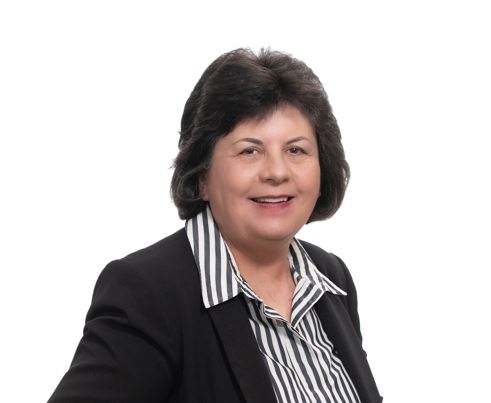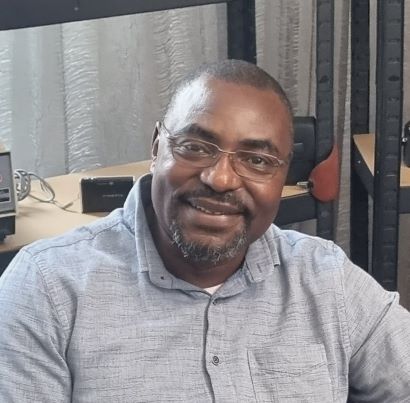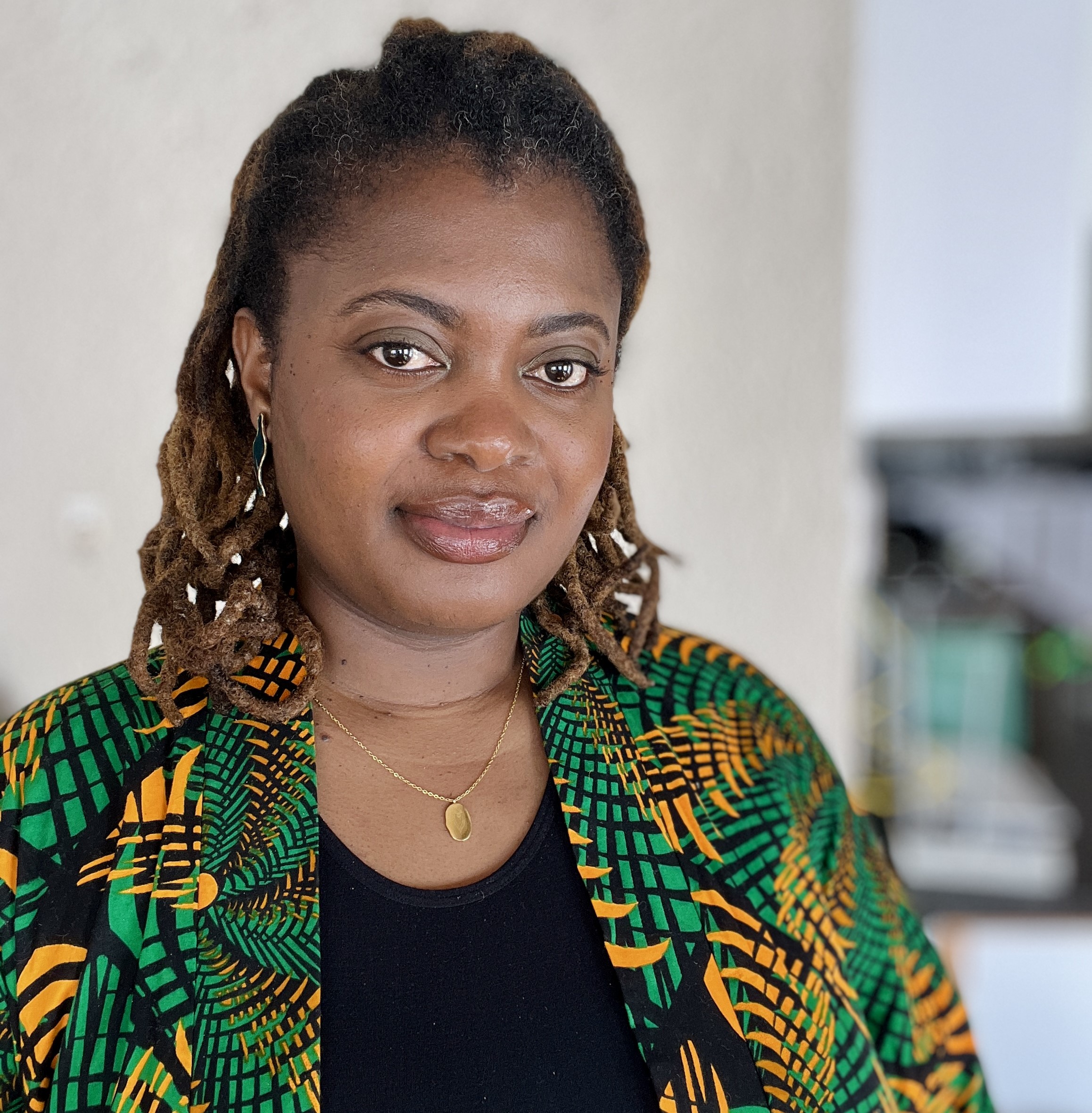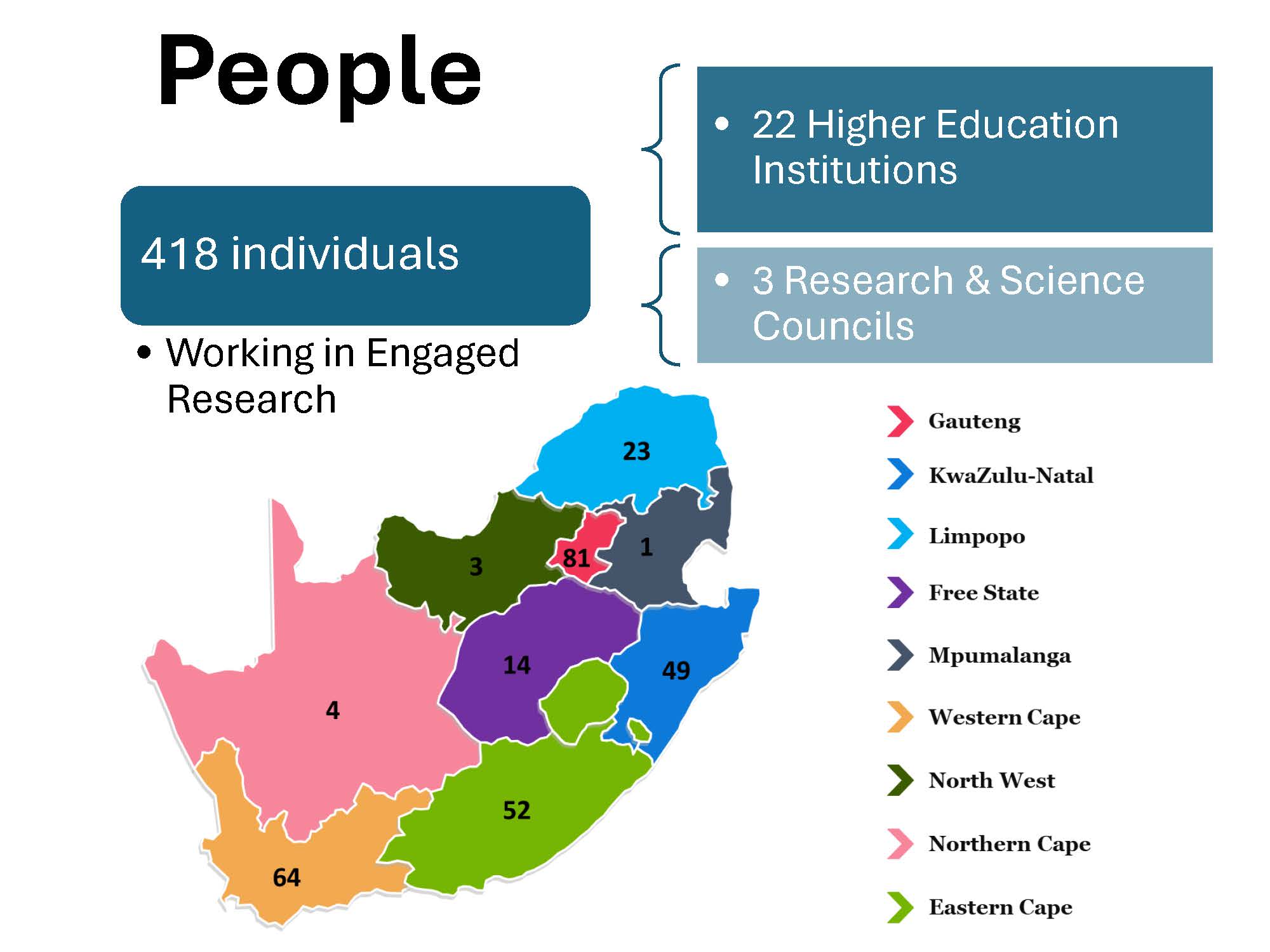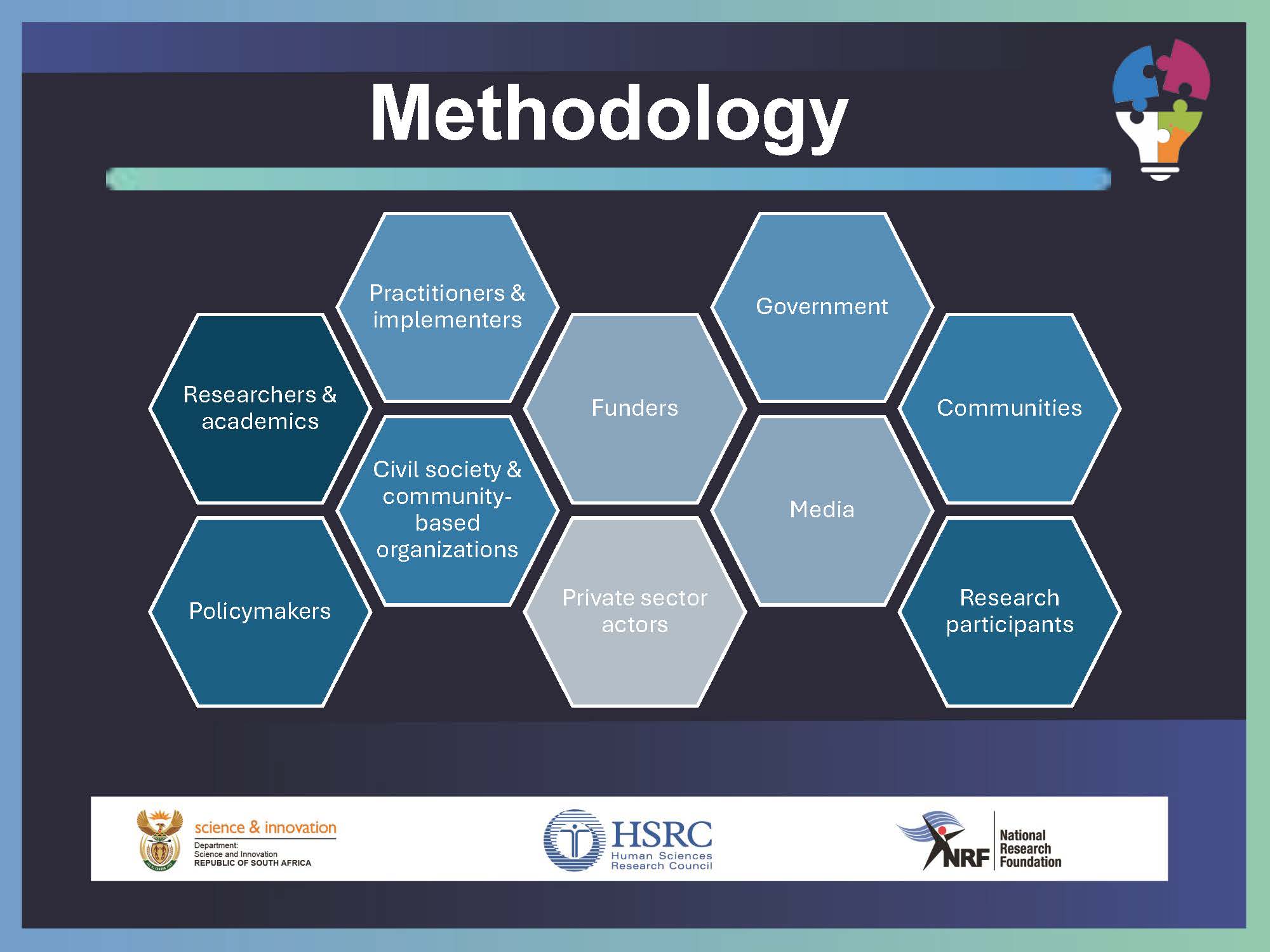By Nonkululeko Dlamini
As part of our ongoing blog series, we are unpacking the Engaged Research Conference’s main themes. We move on to the second theme, Impactful Community Partnerships, and turn our attention to research that goes beyond collaboration to show what happens when partnerships are built on trust, reciprocity, and shared purpose.
Leading the way in community engaged research is the HSRC’s Centre for Community-Based Research (CCBR), which places collaboration and partnerships at the heart of its work. By ensuring that research is not only conducted in communities but also with communities, the CCBR has been able to deliver projects that are both impactful and sustainable.

A pioneer in implementation
On the research front, the CCBR has pioneered implementation studies such as Do PrEP, SMART ART, and BIYELA, these projects brought services closer to where people live, used trained community health workers, and designed care in ways that respect local culture and reduce stigma. By making healthcare more practical, local, and patient-friendly, CCBR has helped more people start and stay on treatment, while also generating evidence-based research to guide national health policies. These interventions have improved health outcomes while making services more accessible and acceptable to locals.
Collaboration and partnership are central to this effort. CCBR works directly with community members, providing training for local fieldworkers, supporting grassroots projects, and creating opportunities for employment and skills development. At the same time, it partners with government, non-governmental organisations, and health systems to ensure that research findings are translated into practice and policy. This creates mutual benefit where communities gain improved services, capacity, and empowerment, while researchers gain deeper insights and stronger evidence for scalable interventions.
Through its sustained presence and dedication to co-creation, the CCBR has demonstrated how partnerships based on mutual respect, trust, and shared goals can transform both science and society. Its work continues to set an example for how engaged research can bridge scientific knowledge and lived experience, building stronger and healthier communities.

